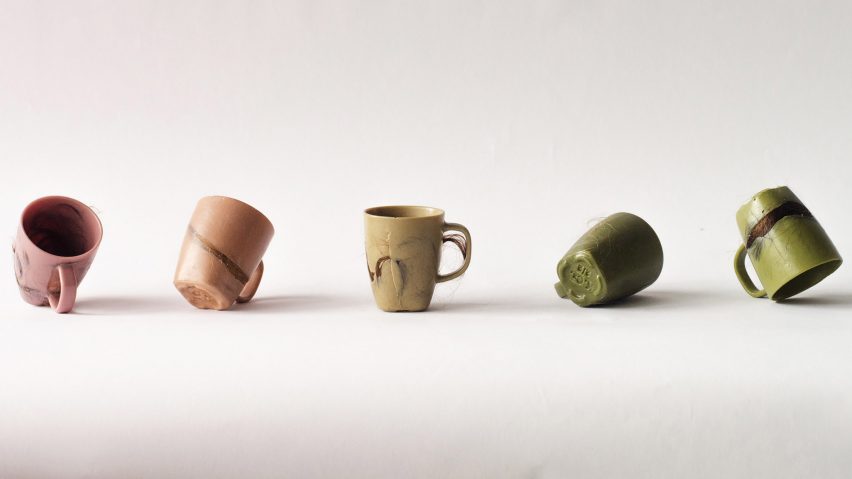
10 designs made from the human body that will make you squirm
Designers are increasingly looking to the human body when finding materials for their creations. Here are 10 of the most stomach-churning examples, featuring blood, sweat and tears (plus urine and hair).
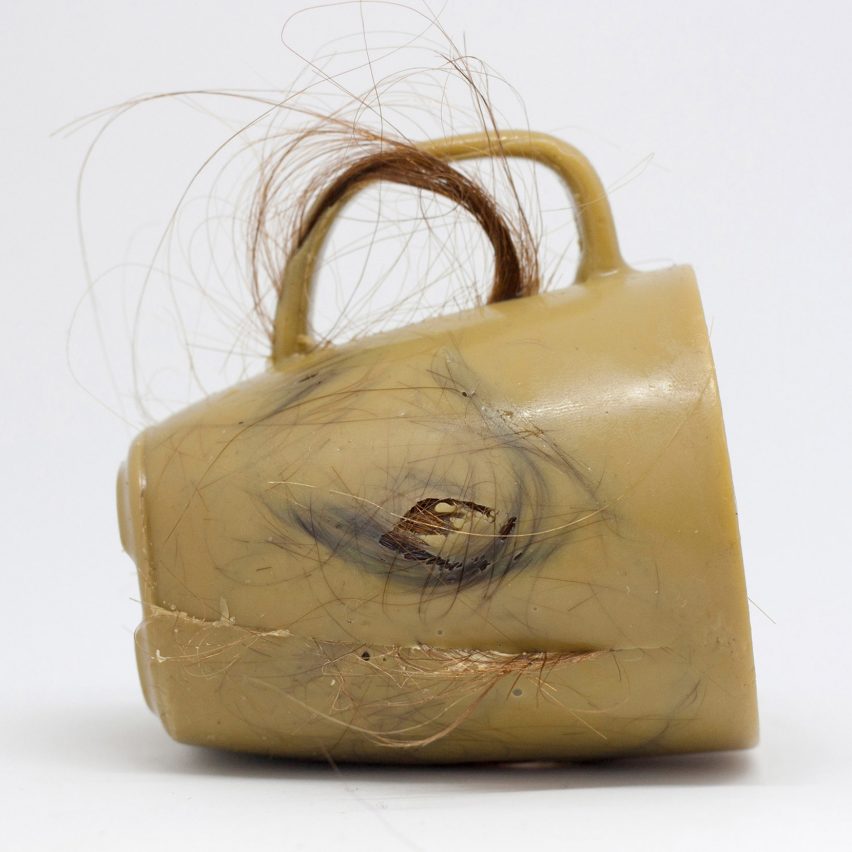
This Is Not A Värdera by Krisztina Czika
Krisztina Czika is one of several designers exploring how human hair can be used as the base material for products.
The Hungarian designer made a collection of 15 mugs from wax and human hair harvested from four donors, including herself, as part of the DesignLab course at Gerrit Rietveld Academie.
Find out more about This Is Not A Värdera ›
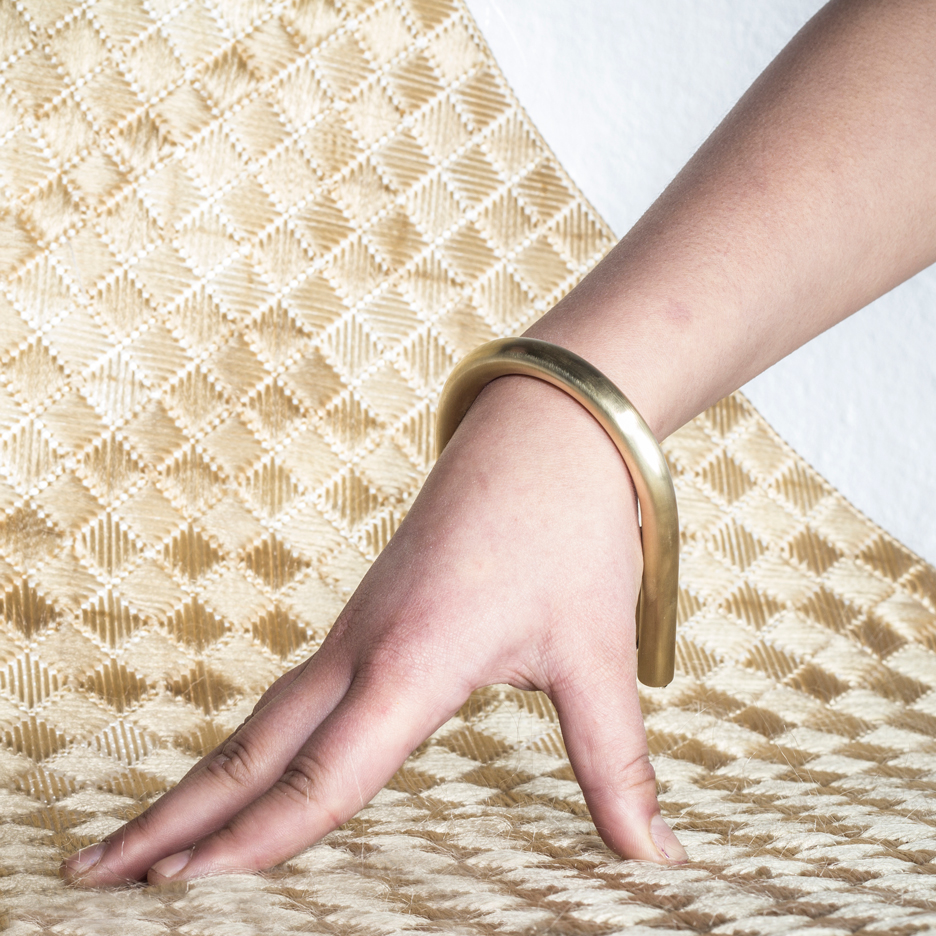
Human Hair Transformation by Zsofia Kollar
Also working with human hair, Zsofia Kollar has created a series of scented objects, including a golden wall hanging and a U-shaped necklace.
Kollar wanted to show that there are alternative uses for the large amounts of human hair that are thrown out each year.
Find out more about Human Hair Transformation ›
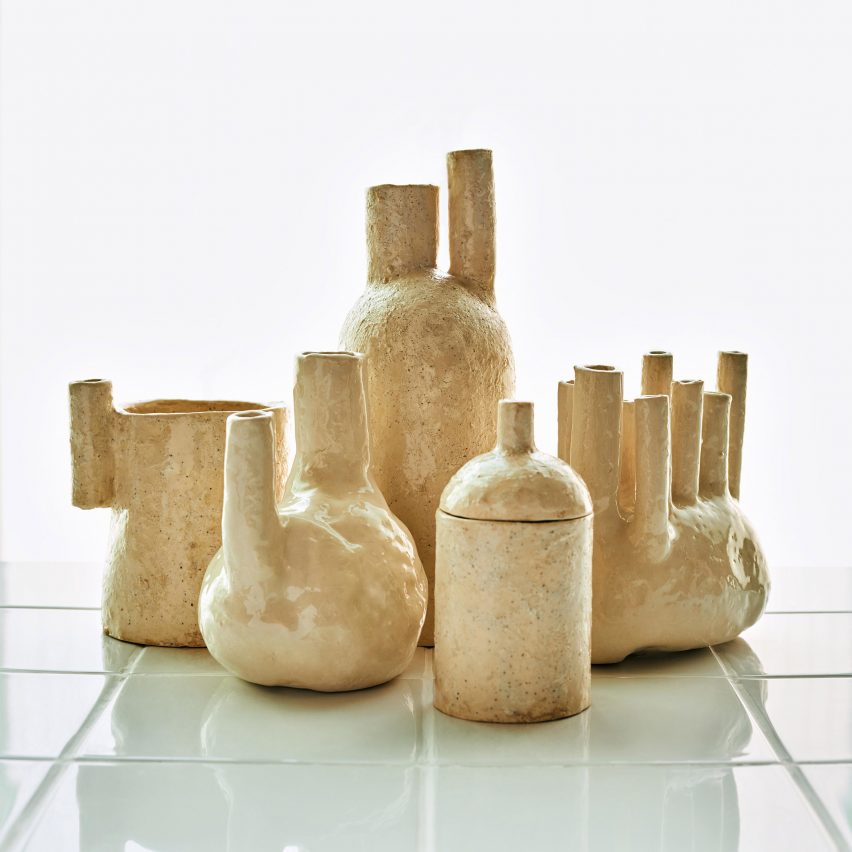
Sinae Kim chose to demonstrate the potential to recycle another item of human waste, urine, in this collection of decorative vessels inspired by the shape of the human bladder.
The Central Saint Martins graduate coated the ceramics with a glaze made from 280 litres of human urine, which was collected from five people over a period of five months.
Find out more about Urine Ware ›
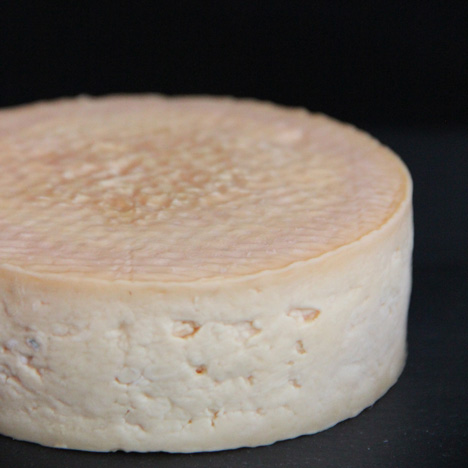
Selfmade by Christina Agapakis and Sissel Tolaas
American scientist Christina Agapakis and Norwegian scent expert Sissel Tolaas collected bacteria from artist Olafur Eliasson's tears, curator Hans Ulrich Obrist's nose and chef Michael Pollan's belly button to make human cheese.
The cheeses formed part of an exhibition about synthetic biology in Dublin.
Find out more about Selfmade ›
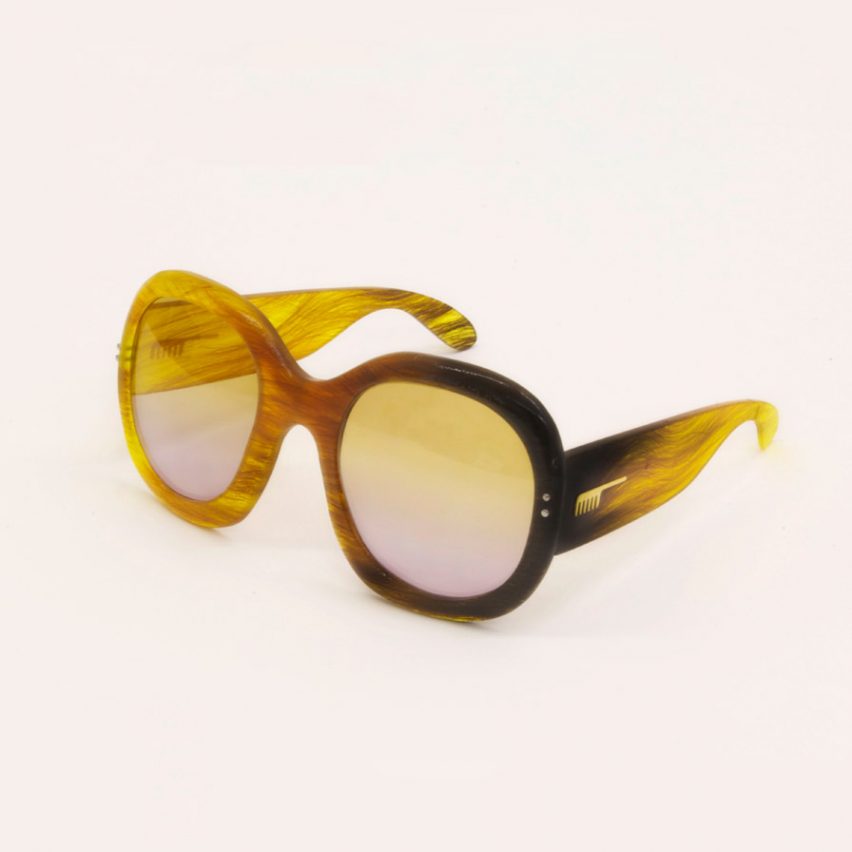
Made from human hair bound with natural resin, this range of glasses was designed by Azusa Murakami and Alexander Groves for their Royal College of Art graduate show in 2011.
The pair, known as Studio Swine, revisited the process in 2014 to create a range of accessories including combs and vases.
Find out more about Hair Glasses ›
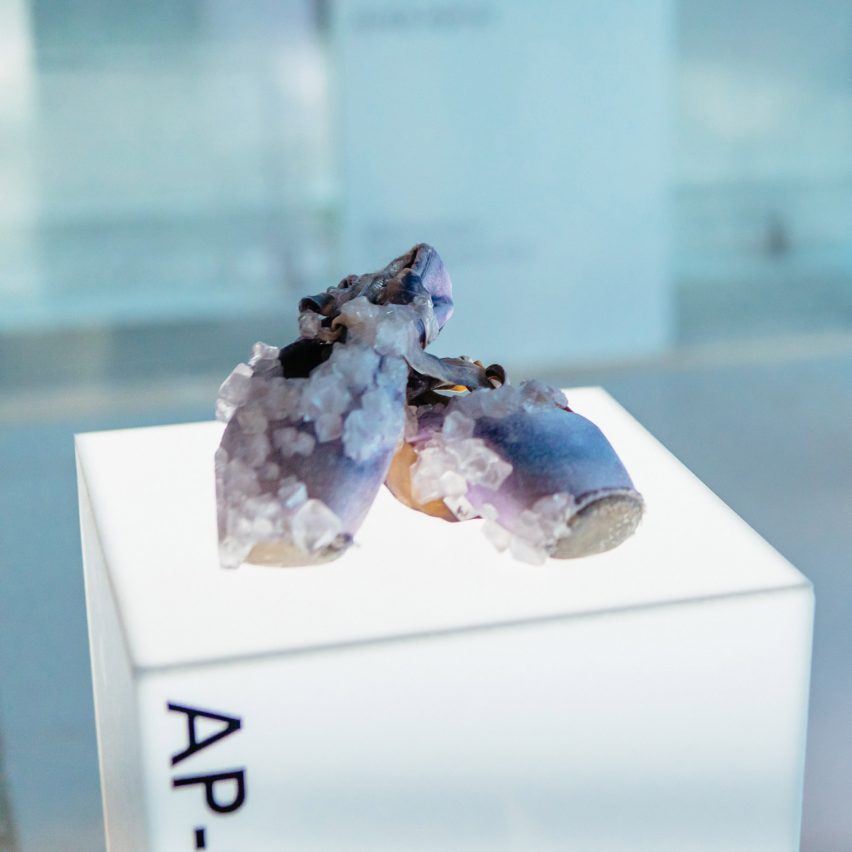
Alice Potts used human sweat as the starting point for her Royal College of Art project this year.
The designer encrusted a series of garments, including ballet shoes and a sports jersey, in crystals made from the sweat.
Find out more about Perspire ›
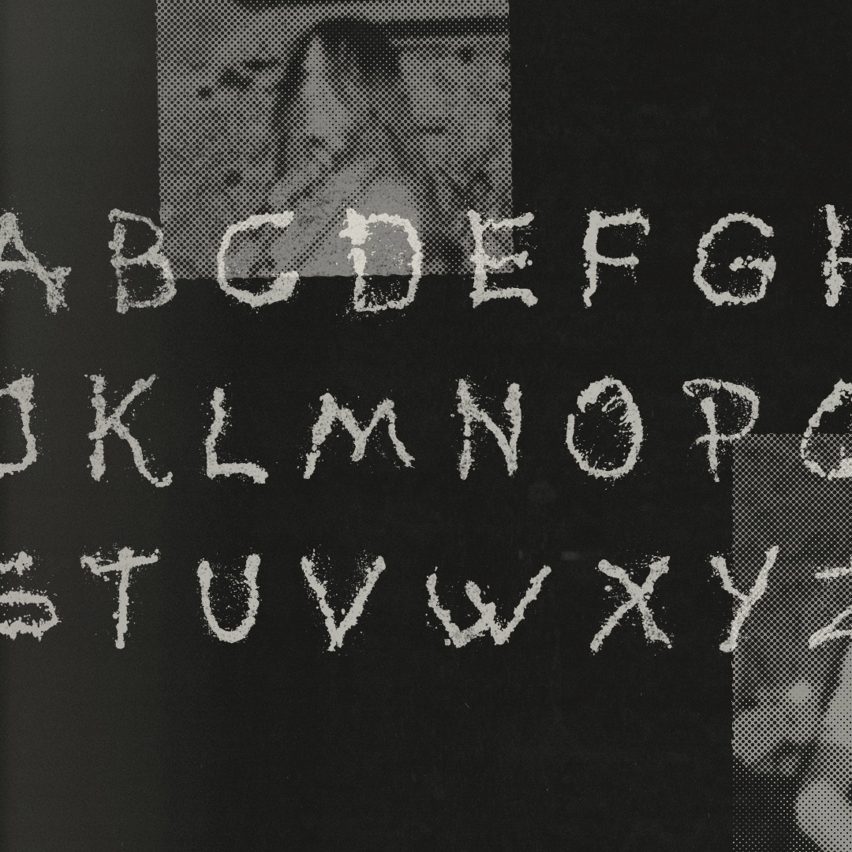
Swedish hardcore band Pissjar took inspiration from their name to create a typeface made entirely from their own urine.
According to the artists, the appropriately named Pissjar Sans takes inspiration from the "dirty disruption" created by punk music.
Find out more about Pissjar Sans ›
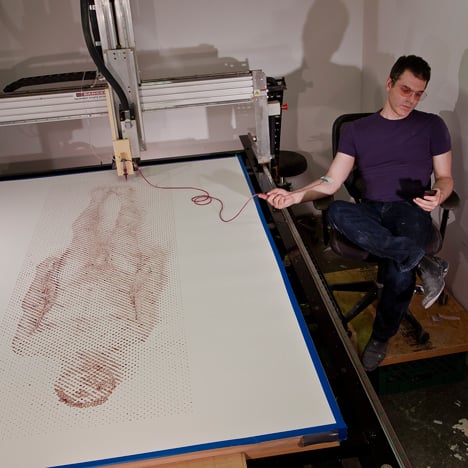
Human blood was the material of choice for Ted Lawson. The artist connected himself to a painting machine that used a "significant amount" of his own blood as ink to draw a nude portrait of himself.
The artwork was created as part of a series Lawson created using Computer Numerically Controlled (CNC) machines.
Find out more about Drawing Blood ›
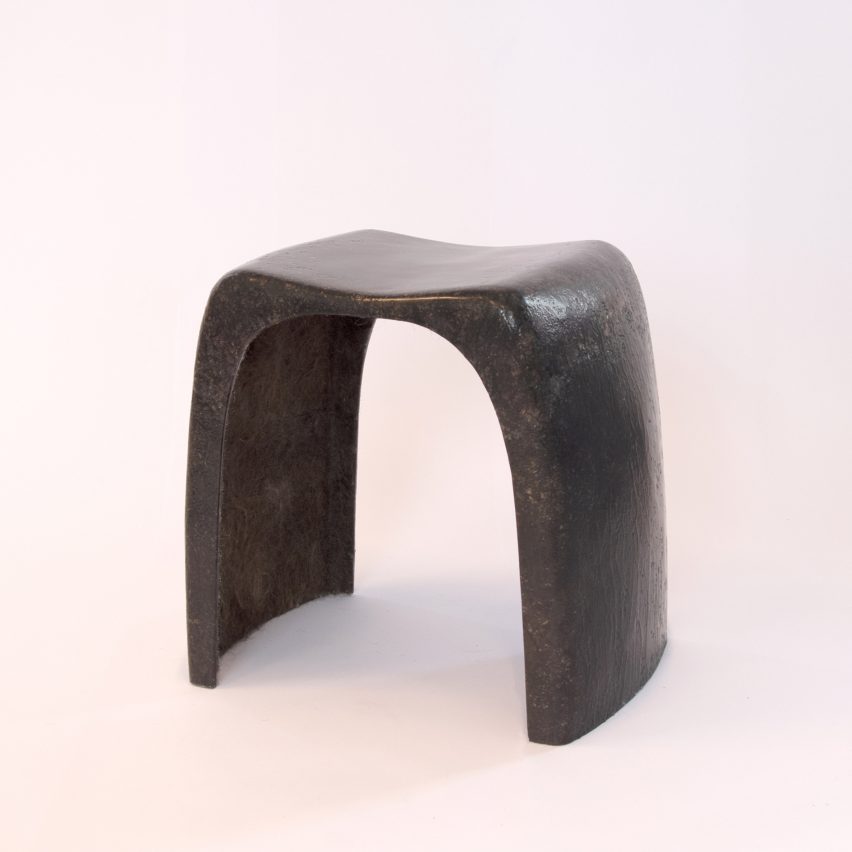
Another designer experimenting with potential uses for waste human hair, Kingston School of Art graduate Oksana Bondar created a dressing table stool from the material.
Bondar combined three weeks worth of hair cuttings from her local salon with Polylactic Acid (PLA) – a biodegradable plastic made from corn starch or sugar cane – to create the biodegradable stool.
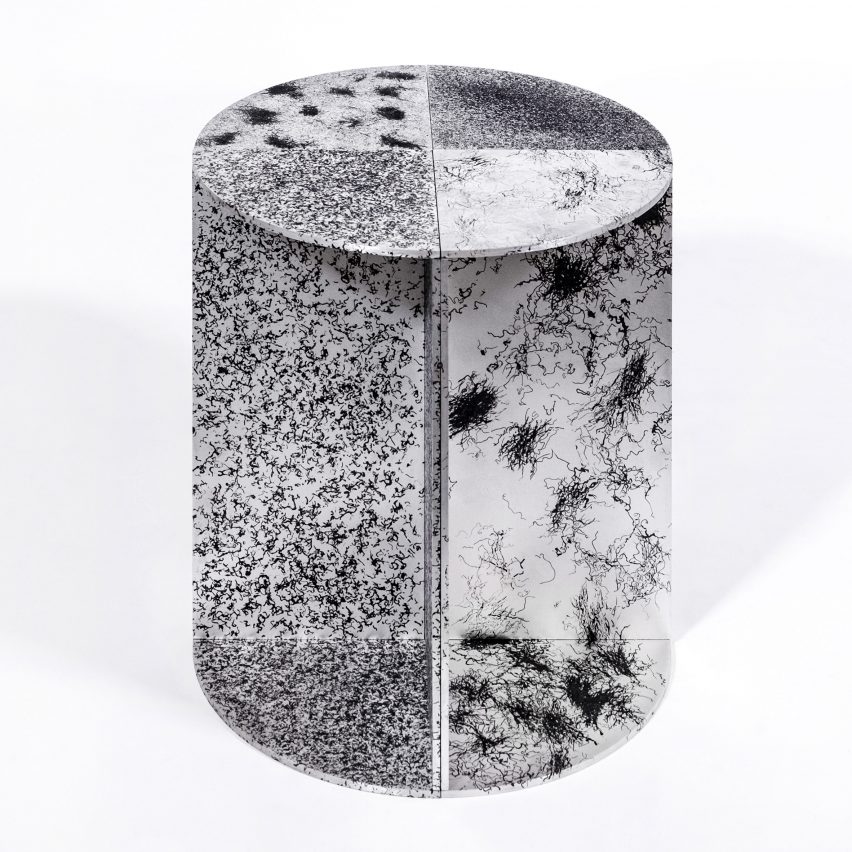
The Colour of Hair by Fabio Hendry and Martijn Rigter
London-based designers Fabio Hendry and Martijn Rigters used human hair to create a type of sustainable ink to print patterns on a set of aluminium stools.
The patterns were created by placing the offcuts from local hairdressers on the heated up aluminium, which makes it carbonise and penetrate the material.
Find out more about The Colour of Hair ›